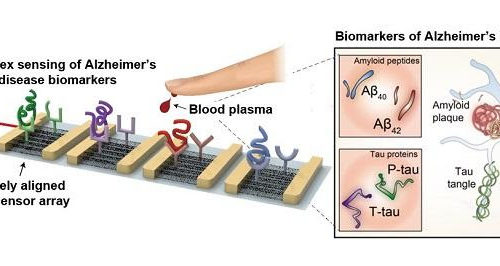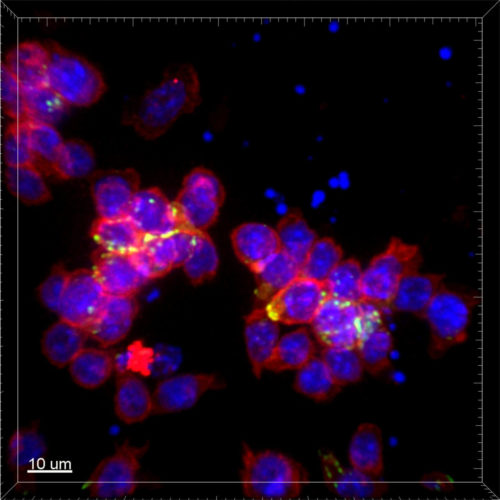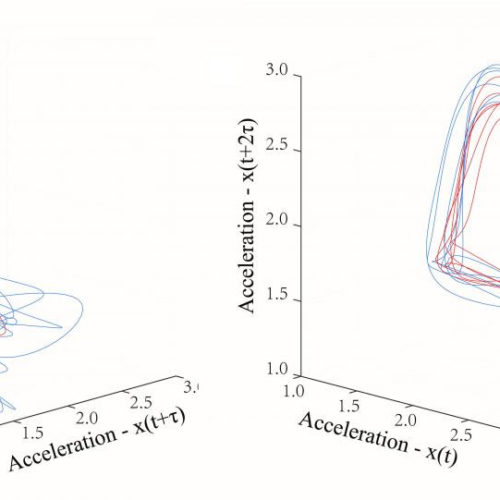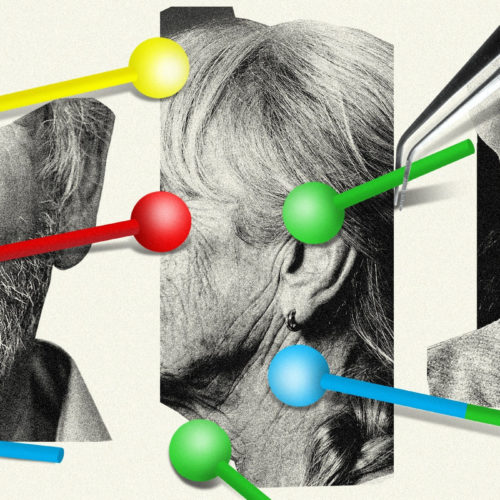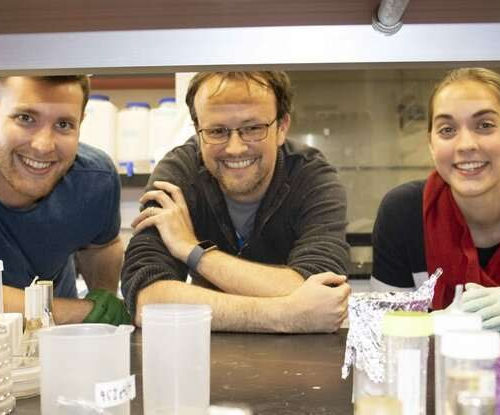Alzheimer’s disease THE KOREA ADVANCED INSTITUTE OF SCIENCE AND TECHNOLOGY (KAIST) A research team at KAIST reported clinically accurate multiplexed electrical biosensor for detecting Alzheimer’s disease by measuring its core biomarkers using densely aligned carbon nanotubes. Alzheimer’s disease is the most prevalent neurodegenerative disorder, affecting one in ten aged over 65 years. Early diagnosis can...
Social control among immune cells improves defense against infections
Immune cells activated by pathogens perceive each other and thus mutually control their proliferation; this mechanism could improve immune therapies for cancer UNIVERSITY OF FREIBURG A simple mechanism, previously known from bacteria, ensures that the immune system strikes a balance between the rapid expansion of immune cells and the prevention of an excessive self-damaging reaction...
Duchenne muscular dystrophy diagnosis improved by simple accelerometers
As the most common form of the disease, early diagnosis of Duchenne muscular dystrophy is key to survival AMERICAN INSTITUTE OF PHYSICS WASHINGTON, February 11, 2020 — Duchenne muscular dystrophy is the most common type of muscular dystrophy, affecting more than 10,000 males at birth per year in the United States with severe physical disability,...
5 ways to treat ED with Ayurvedic medicine
Ayurvedic medicine is a form of complementary and alternative medicine (CAM) that may be useful in treating erectile dysfunction (ED). People with ED generally have difficulty getting or maintaining an erection for satisfactory sexual performance, and Ayurvedic doctors have been using plants to treat the condition for more than 3 millennia. However, few clinical trials...
Researchers discover key protein in endometrial cancer growth
by Ashlee Bright, Huntsman Cancer Institute The hormone estrogen plays many critical roles in men and women, in both healthy tissues and in cancer. In breast and gynecologic cancers, estrogen sends signals to tumors instructing the cancer cells to grow out of control. In recent years, studies have shed light on the growth-promoting role of...
Research points to potential brain marker of stress and its effects on problem solving
by University of Missouri Stress response is the body’s normal physiological reaction to a situation that it perceives as threatening. However, stress can also impact important aspects of thinking, including problem solving. Researchers from the University of Missouri School of Medicine and the MU Thompson Center for Autism and Neurodevelopmental Disorders have discovered a potential...
Crispr’d Cells Show Promise in First US Human Safety Trial
Using genetically-edited cells to supercharge the immune system caused no adverse effects in cancer patients. It’s too soon to tell if it can be a cure. It’s been over three years since US regulators greenlit the nation’s first in-human test of Crispr’s disease-fighting potential, more than three years of waiting to find out if the...
Pedal to the metal: Speeding up treatments for ALS
by Mikayla MacE, University of Arizona A therapeutic intervention for amyotrophic lateral sclerosis, better known as ALS or Lou Gehrig’s disease, could be on the horizon thanks to unexpected findings by University of Arizona researchers. ALS is the progressive degeneration of motor neurons that causes people to lose the ability to move and eventually speak,...
Shingles vaccine may also reduce stroke risk
by American Heart Association Shingles, a viral infection caused by the chickenpox virus, is linked to an increased risk of stroke. A new study found that Zoster Vaccine Live, one type of shingles vaccination, may prevent some older adults from having a stroke, according to preliminary research to be presented at the American Stroke Association’s...
Portable MRIs bring diagnostics to stroke patients’ bedside
by American Heart Association A portable, low-field Magnetic Resonance Imaging (MRI) system may become a safe and practical way to get accurate brain images at a patient’s bedside, according to preliminary research to be presented at the American Stroke Association’s International Stroke Conference 2020—Feb. 19-21 in Los Angeles, a world premier meeting for researchers and...

